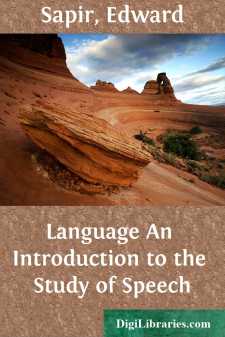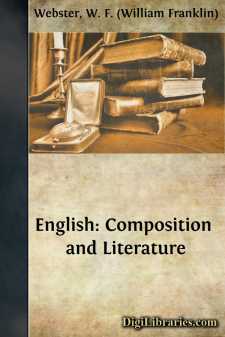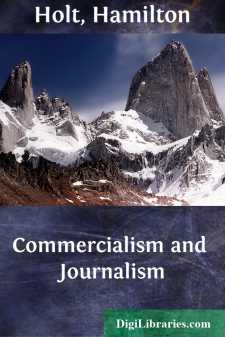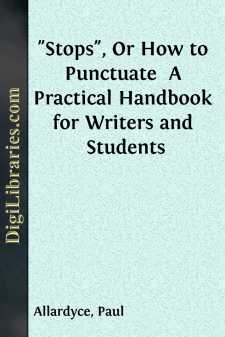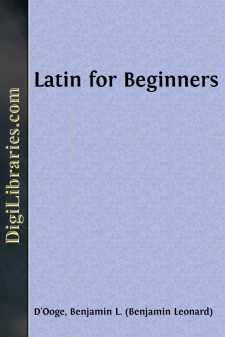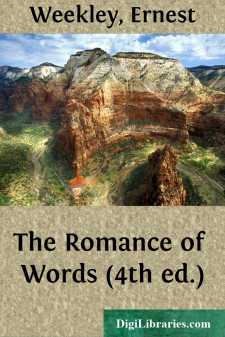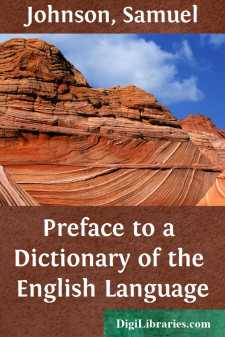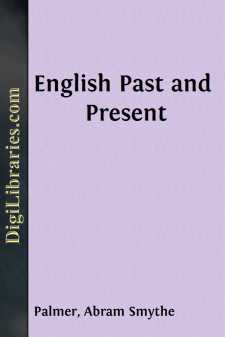Language Arts & Disciplines
Language Arts & Disciplines Books
Sort by:
by:
Edward Sapir
I Introductory: Language Defined Speech is so familiar a feature of daily life that we rarely pause to define it. It seems as natural to man as walking, and only less so than breathing. Yet it needs but a moment’s reflection to convince us that this naturalness of speech is but an illusory feeling. The process of acquiring speech is, in sober fact, an utterly different sort of thing from the process...
more...
PREFACE In July, 1898, I presented at the National Educational Association, convened in Washington, a Course of Study in English. At Los Angeles, in 1899, the Association indorsed the principles of this course, and made it the basis of the Course in English for High Schools. At the request of friends, I have prepared this short text-book, outlining the method of carrying forward the course, and...
more...
Word study and English grammar are important to the young printer for several reasons. In the first place, disregard of the correct use and combination of words is a distinct mark of inferiority and a serious bar to business and social advancement. A man's use of words is commonly taken as a measure of his knowledge and even of his intelligence. Carelessness in this regard often causes a man to be...
more...
by:
Hamilton Holt
COMMERCIALISM AND JOURNALISM In the United States of America, public opinion prevails. It is an axiom of the old political economy, as well as of the new sociology, that no man, or set of men, may with impunity defy public opinion; no law can be enforced contrary to its behests; and even life itself is scarcely worth living without its approbation. Public opinion is the ultimate force that controls...
more...
by:
Paul Allardyce
INTRODUCTION The Use of Punctuation.—Punctuation is a device for marking out the arrangement of a writer's ideas. Reading is thereby made easier than it otherwise would be. A writer's ideas are expressed by a number of words arranged in groups, the words in one group being more closely connected with one another than they are with those in the next group. An example will show this grouping...
more...
LATIN FOR BEGINNERS TO THE STUDENT—BY WAY OF INTRODUCTION What is Latin? If you will look at the map of Italy on the opposite page, you will find near the middle of the peninsula and facing the west coast a district called Latium,1 and Rome its capital. The Latin language, meaning the language of Latium, was spoken by the ancient Romans and other inhabitants of Latium, and Latin was the name applied...
more...
by:
Ernest Weekley
PREFACE A long and somewhat varied experience in language teaching has convinced me that there are still, in spite of the march of science, many people who are capable of getting intellectual pleasure from word-history. I hope that to such people this little book, the amusement of occasional leisure, will not be unwelcome. It differs, I believe, from any other popular book on language in that it deals...
more...
by:
Samuel Johnson
It is the fate of those who toil at the lower employments of life, to be rather driven by the fear of evil, than attracted by the prospect of good; to be exposed to censure, without hope of praise; to be disgraced by miscarriage, or punished for neglect, where success would have been without applause, and diligence without reward. Among these unhappy mortals is the writer of dictionaries; whom mankind...
more...
Lau is the name given to the language spoken by the inhabitants of the artificial islets which lie off the northeast coast of Big Malaita, Solomon Islands. The language spoken on the coast from Uru on the northeast to Langalanga, Alite Harbor, on the northwest of Big Malaita, is practically Lau. On the west coast there is considerable admixture of Fiu, which is the language of the bush behind the...
more...
ENGLISH A COMPOSITE LANGUAGE “A very slight acquaintance with the history of our own language will teach us that the speech of Chaucer’s age is not the speech of Skelton’s, that there is a great difference between the language under Elizabeth and that under Charles the First, between that under Charles the First and Charles the Second, between that under Charles the Second and Queen Anne; that...
more...


